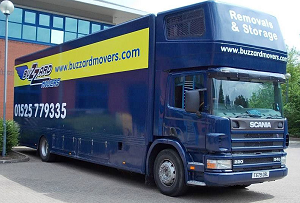 Moving house
Moving house
After moving out of London for a new life in the country, I decided to share my experiences.
We wasted time and money visiting properties that were not suitable and worked out a pre-visit routine to rule out many homes.
Having worked out our requirements finding potential new homes was easy. Every estate agent advertises their properties online, many of them having a website. We used Zoopla and Rightmove to find potential homes, which are both excellent. Just type in the location, price range, number of rooms, and some preferences, and in seconds you have a world of possibilities.
Going through each advert, you get brilliant colour pictures, a description, a plan, and a rough location, usually with a map. As a general rule, we found that rooms that had no photographs were often to hide something. Also, the lenses used by estate agents often made things look larger. When we visited a few properties, we were surprised at how much smaller things were, especially gardens.
Zoopla also shows details of past sale prices, which can be helpful. We found the data not entirely up to date, and some estimates are based on properties of different types and sizes on the same street, so it could be very misleading.
Using online resources
We visited one lovely property in Kent only to find it was on the edge of a motorway embankment. The location was not in the details or shown on a local map. From then on, we looked at each property on Google Earth to see its exact location, and the street view feature allowed us to see the immediate area. Estate agents rarely give the exact address or postcode, but finding the property usually takes a few minutes.
We checked the online crime reports to ensure we had no nasty surprises. Several sites on the Internet provide information; our watch brings up a crime map and allows users to drill down to street level. We found this excellent guide but not entirely foolproof. It did stop up from buying one property which was in an area of anti-social behaviour and some drug problems. After we had made an offer, we found this information and visited the area on a Friday evening and spoke to some local publicans. That was a close escape.
Internet
When moving house, having fast and reliable broadband is vital, and there is an excellent website called Sam Knows that gives details of the local exchange. You put in the postcode, and it gives you the details of which services are available. Most people are interested in ADSL, FTTC, and FTTP. FTTC is Fibre to the Cabinet, which many people know as BT Infinity but is available from some other providers called something else. FTTP is fibre to the premises and, as the name suggests, is fibre optic cable to the router. This information should only be used as a guide as some broadband services are unavailable on all streets.
Schools
Having a young baby, we needed to plan for childcare and schooling before moving house. We looked at Ofsted reports for the local schools and childcare providers. These are not the most riveting read, but they describe the local schools well. Coincidentally, the press was publishing some stories that were critical of the inspection process and that some schools were abusing the system to get better scores. We also found that many schools did not have recent reports, some as much as five years old. The suggestion was that schools with a good history did not need regular reassessments. We also spoke with people we met but found that what people told us was often at odds with the Ofsted reports.
Travel
Good trains were essential to us, so we only looked at places with train stations. Checking fares was obvious, but timetables also showed which towns had fast trains. Picking the wrong place means having a long journey with lots of stops or having to change. Each train operator has a website and often a smartphone app.
We also found some towns had coach services that were frequent and cost-effective and also had websites and smartphone apps.
Another helpful online service is Crashmap.co.uk which lists road accidents involving all road users and indicates accident hot spots. Accident information is especially useful to see any potential school’s safety.
Summary
Once we had learned from some mistakes and started getting the best out of the online information, we avoided visiting unsuitable properties and, in the end, bought what has turned out to be an excellent home. However, relying on any of these sources on their own would be risky, and we tried our best to verify some of them from other sources.

